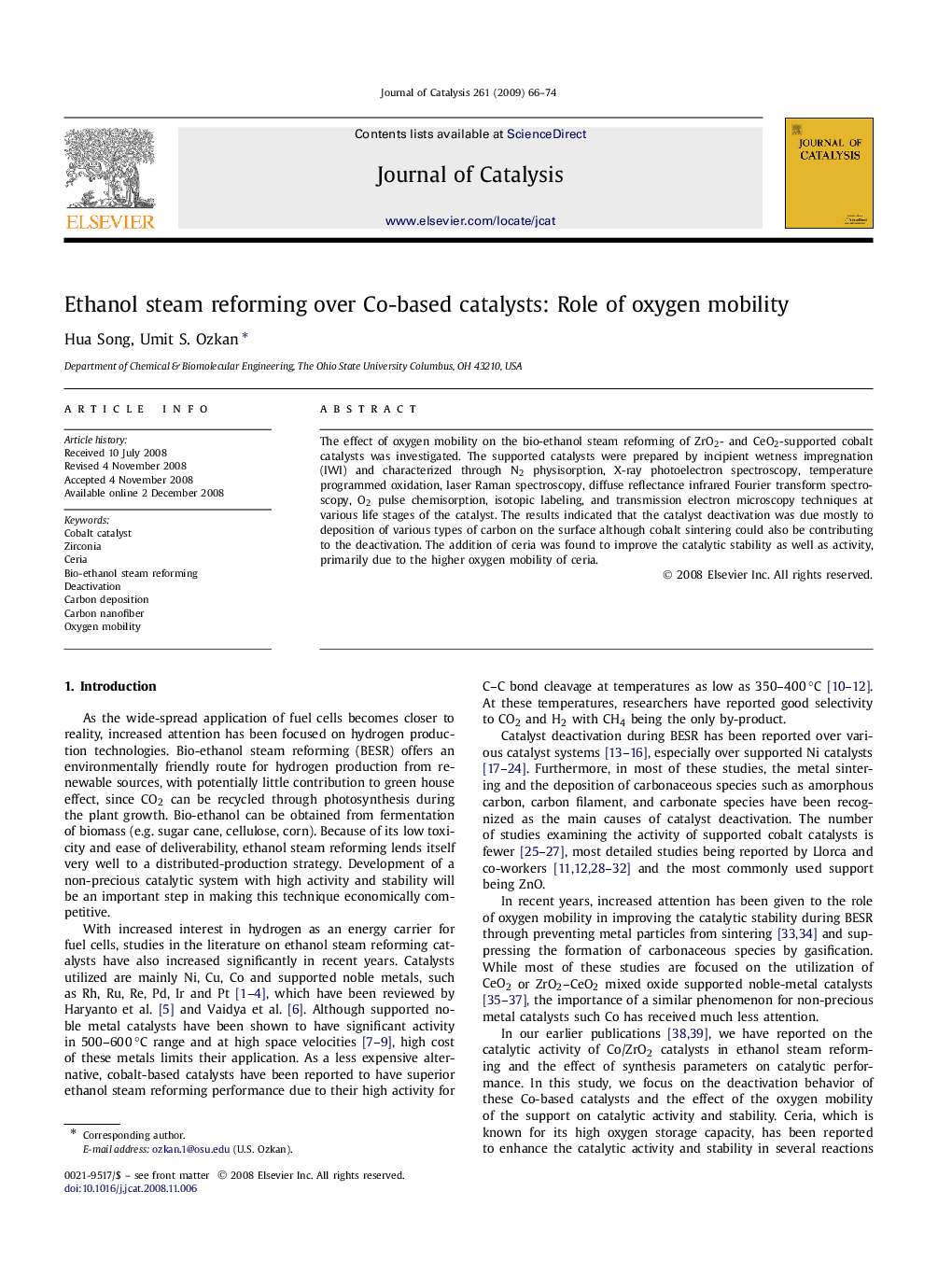| Article ID | Journal | Published Year | Pages | File Type |
|---|---|---|---|---|
| 62679 | Journal of Catalysis | 2009 | 9 Pages |
The effect of oxygen mobility on the bio-ethanol steam reforming of ZrO2- and CeO2-supported cobalt catalysts was investigated. The supported catalysts were prepared by incipient wetness impregnation (IWI) and characterized through N2 physisorption, X-ray photoelectron spectroscopy, temperature programmed oxidation, laser Raman spectroscopy, diffuse reflectance infrared Fourier transform spectroscopy, O2 pulse chemisorption, isotopic labeling, and transmission electron microscopy techniques at various life stages of the catalyst. The results indicated that the catalyst deactivation was due mostly to deposition of various types of carbon on the surface although cobalt sintering could also be contributing to the deactivation. The addition of ceria was found to improve the catalytic stability as well as activity, primarily due to the higher oxygen mobility of ceria.
Graphical abstractCeO2 improves catalyst stability and reactivity for steam reforming predominantly because of its high oxygen mobility.Figure optionsDownload full-size imageDownload high-quality image (71 K)Download as PowerPoint slide
